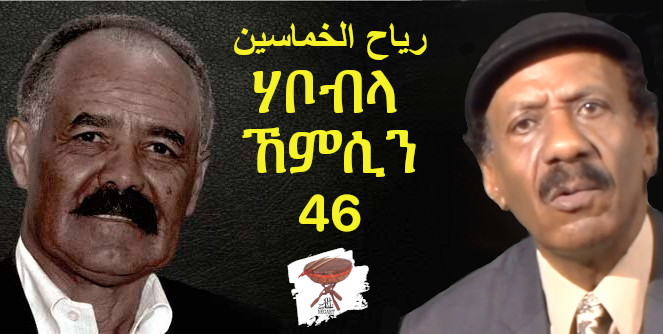Brainwashing The Young: YPFDJ Panelists Redefine Human Rights

Over labor day weekend, while most of the City of Davis was out of town vacationing for the holiday, UC Davis became the site for a large youth conference organized by the government of what is often referred to in the media as “Africa’s North Korea.”[1]
Davis is a small college town nestled in the Sacramento Valley of northern California. It is home to about 65,000 residents, approximately half of whom are students enrolled at the University of California Davis (UC Davis). Davis is known for being progressive, liberal, eco-conscious, and bike-friendly. Most recently, UC Davis drew international attention when student protestors were pepper-sprayed by campus police. A photo taken during the protest of an officer spraying a line of students seated on the pavement nearly reached iconic status as a representation of modern day peaceful protest and police brutality. But, for the most part, Davis doesn’t draw too much attention to itself. Its residents often compare Davis (affectionately) to an insulated bubble.
Over the course of the long weekend, the Eritrean ruling party, which is to say the government, hosted its ninth annual conference for the Young People’s Front for Democracy and Justice (YPFDJ), which is a youth organization that aims to “build a strong, conscious and patriotic Eritrean youth movement.”
As an Eritrean descendent living in North America, I decided to attend one evening of the conference at the invitation of conference organizers. A presentation entitled “Human Rights and Eritrea’s Image” was scheduled for that evening. Having studied, researched and worked with international human rights law, it was quite serendipitous that I happened to sit in on the human rights presentation.
What I hoped would be a conversation about charges of serious human rights violations in Eritrea turned out to be little more than an hour of indoctrination and rhetorical sidestepping on critical issues. Not only were known big-ticket items not even mentioned (such as indefinite military conscription;[2] severe restriction of freedom of speech, press, association and religion; [3] frequent disappearances;[4] forced labor;[5] the detention of political prisoners;[6] and the shoot-to-kill policy for people attempting to leave Eritrea without authorization[7]), but panelists denied outright the occurrence of human rights events of significant proportions including ongoing human trafficking in the Sinai desert,[8] an attempted military coup by 100 armed personnel that took place in January 2013,[9] and the UN’s allegation that 10,000 political prisoners are held in Eritrea.[10]
As I sat there in Freeborn Hall witnessing what I realized was a foreign government actively brainwashing several hundred young people, it occurred to me that no one else probably knew this was happening. Unlike the first eight annual conferences that were all held in major metropolitan areas with substantial dissenting diaspora communities, this year’s conference was in Davis, California. There were very few people in Davis – particularly over the long weekend – to protest, witness or even notice what Eritrea was doing in Freeborn Hall. With this report, I hope to bring to light the significant events of that evening so that they do not fade away into the forgotten history of a small college town in northern California.
Perhaps the most fascinating thing about the embassy’s human rights presentation was its delivery. The presenters mainly spoke about Eritrea’s image, the peoples’ collective right to self-determination, and the state’s freedom from interference by the international community. The presenters set the stage by signaling that the audience ought to be thankful for Eritrea’s independence from Ethiopia and colonization. The evening opened up with a skit honoring the freedom fighters (or “martyrs”) that died during Eritrea’s 30-year war of independence. One young performer thanked the martyrs “for giving us the freedom that we have today.” Before the words “human rights” had even been uttered, the audience was already primed to experience a sense of gratitude for not living during the time of colonization and occupation, thereby drawing attention away from the severe human rights violations that are taking place today in Eritrea.
Rhetorically, human rights were not discussed as the freedoms and rights of individuals living in Eritrea. Instead, human rights were referred to as a “political ploy” of the international community and the United States “to destabilize nations” such as Eritrea. The panelists were asked what words came to mind when they thought about human rights. They answered: “self-determination”, “dignity”, “right to associate” and “justice.” This selection of words is more closely associated with collective and national rights than the rights of individuals. They did not include more individualized human rights concepts such as freedom of speech, freedom of movement, or freedom of civil and political participation.
Very early on in the presentation, the embassy made it clear that the human rights discussion would be about the state’s rights against other states, and the peoples’ right to be free of foreign occupation or control. Nothing suggested that a conversation would ensue about Eritrea’s mandatory program of indefinite military conscription, the government’s prohibition of practicing any religion other than the four that are registered with the state, or the fact that in 2001 the government “destroyed Eritrea’s private press…and arrested its journalists.”[11]
The panelists then took a long irrelevant detour in which they presented a history of the development of human rights law. They criticized the UN’s Human Rights Council as being corrupt and too politically motivated. The panelists ended this tangent by criticizing the United States for not joining significant human rights instruments (i.e., conventions for the rights of women and children). Confusingly, the audience was then asked to determine whether Eritrea is in compliance with international human rights law by tallying up those countries that are not. Illogically, they suggested that Eritrea’s compliance is evidenced by the noncompliance of other nations.
Satisfied by its presentation of Eritrea’s compliance with human rights law, the panelists then turned to their second topic of little consequence to the issue of current human rights violations in Eritrea: the nation’s history of colonization and occupation by foreign states. They cited documented human rights violations against Eritreans by the Italians, Ethiopians and others, including the deportation and expropriation of the bodies and property of over 76,000 Eritreans by Ethiopian authorities. Here, the strategy of persuasion was 1) to discredit those states that accuse Eritrea of dire human rights violations by emphasizing their participation in past persecution against Eritreans, and 2) to derail the conversation from the most pressing human rights issues in Eritrea – those of modern times.
Perhaps the most troubling point in the presentation was when panelists, particularly a young medical student and self-proclaimed activist named Simon Tesfamariam, blatantly denied the occurrence of human trafficking in the Sinai desert or attempted military coup of January 2013. It was at this moment that the conference evolved rhetorically from avoidance and defensive language to outright conspiracy theories of re-occupation and neo-imperialism. That evening, I witnessed the active production of widespread fear and paranoia through a “them-versus-us” rhetoric of radicalism.
The international community’s concern about human trafficking of Eritreans in the Sinai desert was condemned as a political attempt to justify a reoccupation of Eritrea by Ethiopia or the United States. Simon Tesfamariam explicitly compared this to global campaigns used to justify colonization during the Scramble for Africa. He questioned the credibility of human trafficking claims and demanded the release of victims’ names and addresses as evidence, despite ample documentation and reporting on the issue.[12] The message was surprisingly clear: human trafficking of Eritreans is not happening in the Sinai desert, and a global campaign against human trafficking is merely a pretext to justify continued sanctions against Eritrea as well as its final eradication or occupation by foreign states.
Another panelist, Sophia Tesfamariam, criticized the recent UN Special Rapporteur’s report on human rights violations in Eritrea. She challenged the credibility of the report on the grounds that the appointed Rapporteur, Sheila B. Keetharuth, was biased due to her long employment with Amnesty International, where she worked extensively on human rights violations in Eritrea. Although, it seemed to me, that there would probably be few qualified candidates for the position than one who has extensively studied human rights in Eritrea.
The presentation ended with a message about the role of the young Eritrean diaspora in protecting Eritrea’s image. They were encouraged to participate in the global discussion of human rights through social media by responding to human rights allegations. The young audience was urged not to be silent when Eritrea is accused of human rights violations. Young members of the diaspora – who will undoubtedly play a significant part in shaping Eritrea’s future – attended that conference, and they were instructed to dismiss all accusations against Eritrea, even when such accusations are supported by insurmountable evidence. Fittingly, the presentation ended without any time allocated for direct questions from the audience.
[1] See, e.g., Nathaniel Myers, Africa’s North Korea, Foreign Policy (July/Aug. 2010), available at http://www.foreignpolicy.com/articles/2010/06/21/africas_north_korea.
[2] Amnesty International, Eritrea, in Annual International Report 2012, 142, 143-144 (2012), available at http://files.amnesty.org/air12/air_2012_full_en.pdf.
[3] Freedom House, Freedom of the Press 2013: Eritrea, http://www.freedomhouse.org/report/freedom-press/2013/eritrea (“Eritrea continued to rank among the worst media environments in the world in 2012”); Human Rights Watch, World Report 2012: Eritrea, available at http://www.hrw.org/sites/default/files/related_material/eritrea_2012.pdf (“…the Eritrean government banned religious activities, except those organized by four registered religious organizations…it deposed the Orthodox patriarch…[and] appointed the current Sunny mufti”).
[4] Human Rights Watch, World Report 2011: Eritrea, available at http://www.hrw.org/world-report-2011/eritrea (“Many detainees simply ‘disappear’”).
[5] Human Rights Watch, World Report 2013: Eritrea, available at http://www.hrw.org/world-report/2013/country-chapters/eritrea (government uses conscripts for forced labor; conscripts do not complain because “we were afraid for our lives”).
[6] Eritrea: ’10,000 political prisoners in awful conditions’, British Broadcasting Company, May 9, 2013.
[7] Human Rights Watch, World Report 2013: Eritrea, available at http://www.hrw.org/world-report/2013/country-chapters/eritrea; Amnesty International, Eritrea, in Annual International Report 2012, 142, 144 (2012), available at http://files.amnesty.org/air12/air_2012_full_en.pdf.
[8] See U.S. Dept. of State, 2012 Trafficking in Persons Report – Eritrea, June 19, 2012, available at http://www.refworld.org/docid/4fe30ccc3c.html (“During the past three years, an estimated 2,000 to 3,000 Eritreans have escaped to refugee camps in eastern Sudan each month; traffickers seek out vulnerable Eritreans in the camps, some of whom were extorted and tortured as they were transported through the Sinai Peninsula”).
[9] See Jeffrey Gettleman, Coup Attempt by Rebel Soldiers Is Said to Fail in Eritrea, Jan. 21, 2013, http://www.nytimes.com/2013/01/22/world/africa/coup-attempt-fails-in-eritrea.html?_r=0 (“mutinous soldiers stormed the Ministry of Information and took over the state-run television service”).
[10] See Eritrea: ’10,000 political prisoners in awful conditions’, British Broadcasting Company, May 9, 2013.
[11] Human Rights Watch, World Report 2012: Eritrea, available at http://www.hrw.org/sites/default/files/related_material/eritrea_2012.pdf.
[12] See, e.g., Katie Nguyen, Number of Eritrean migrants seized, held for ranson on the rise, Thomson Reuters Foundation, Aug. 21, 2013, http://www.trust.org/item/20130821153659-f8ojr/; Katy Migiro, Traffickers attacking Eritrean refugees in Sudan – rights groups, Thomson Reuters Foundation, Jan. 31, 2013, http://www.trust.org/item/20130131110800-2ovgu/?source=hptop; Ashish Kumar Sen, Egypt: ‘In Sinai, I saw hell’; refugees are easy prey for brutal human traffickers, Washington Times, July, 21, 2013, http://www.washingtontimes.com/news/2013/jul/21/in-sinai-i-saw-hell-refugees-are-easy-prey-for-bru/?page=all; Phoebe Greenwood, Eritrean regime cashes in on arms and human trafficking, says UN report, The Guardian, July 17, 2012, http://www.theguardian.com/world/2012/jul/17/eritrean-regime-arms-human-trafficking; Phoebe Greenwood, Egyptian authorities look the other way as Bedouin kidnap refugees, The Guradian, Feb. 14, 2012, http://www.theguardian.com/world/2012/feb/14/egypt-bedouin-kidnap-refugees-israel.




Awate Forum